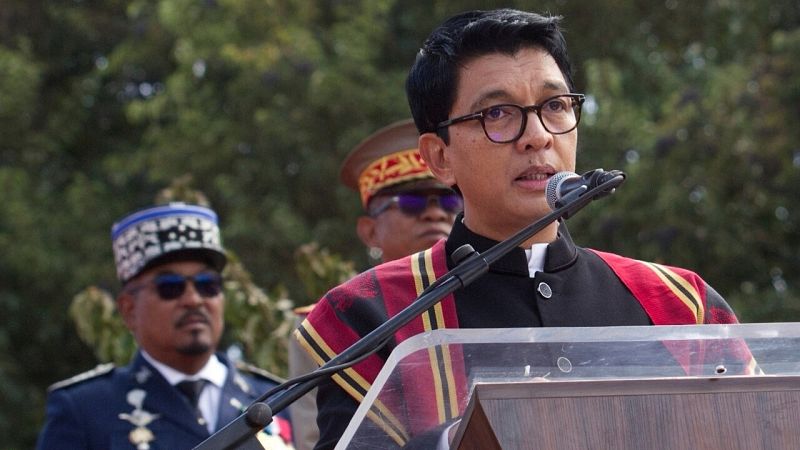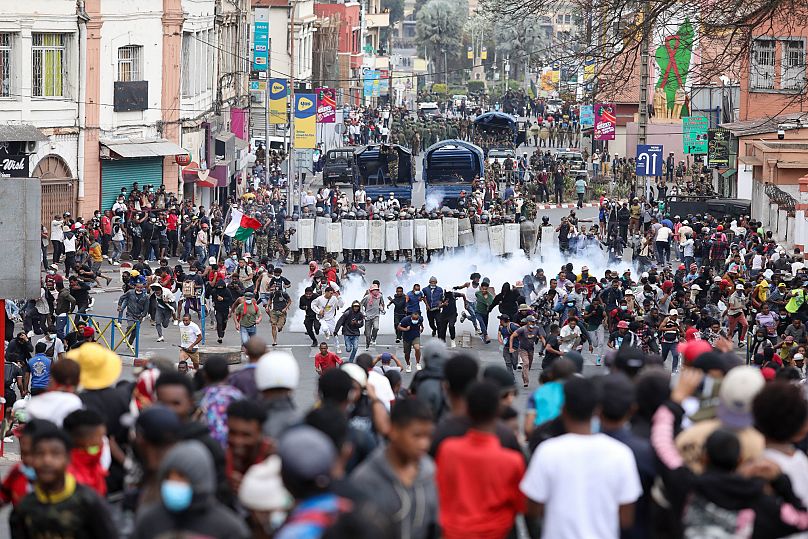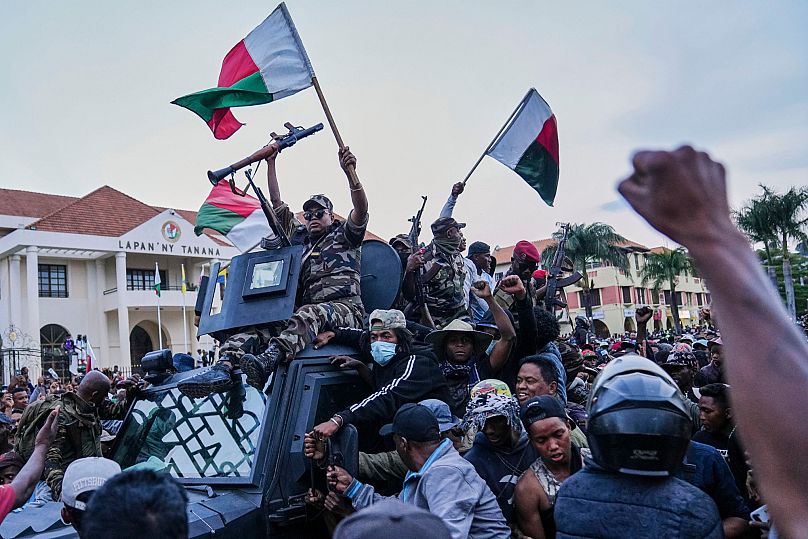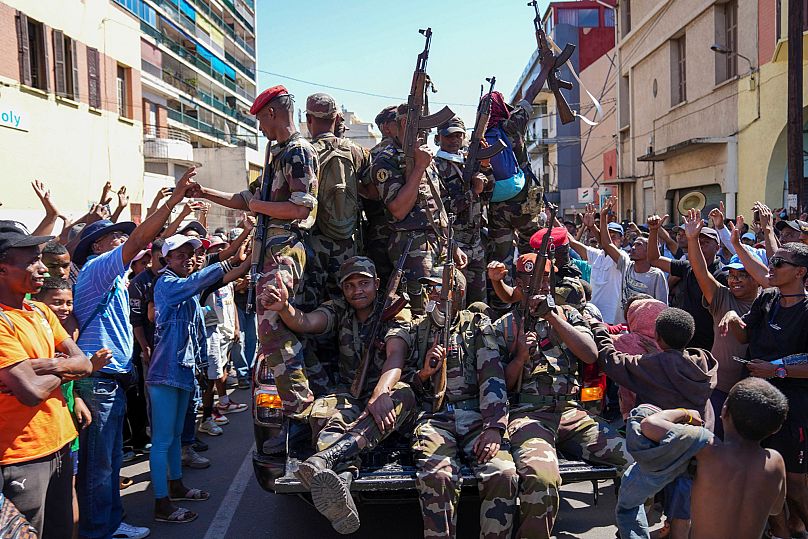Madagascar president flees country after military unit joins anti-government protests

Madagascar President Andry Rajoelina says he has fled the country in fear for his life following weekslong anti-government protests that led to a military rebellion.
The ongoing Gen Z-led anti-government protests reached a pivotal point on Saturday when the elite military unit known as CAPSAT joined, calling for Rajoelina and his ministers to step down.
That prompted Rajoelina to say that an illegal attempt to seize power was underway in the Indian Ocean island and leave the country.
"I was forced to find a safe place to protect my life," Rajoelina said in his late-night speech broadcast on the presidency's official Facebook page.
The speech was also meant to be shown on Madagascar television but was delayed for hours after soldiers attempted to take control of the state broadcaster buildings, according to the president's office.
Rajoelina called for dialogue “to find a way out of this situation” and said the constitution should be respected. He did not say how he left Madagascar or where he was, but a report claimed he was flown out of the country on a French military plane.
A French Foreign Ministry spokesperson declined to comment on that report.
Madagascar is a former French colony and Rajoelina reportedly has French citizenship, which has been a source of discontent for some Madagascans for years.
It is the most significant unrest facing the African island nation of 31 million people since Rajoelina first came to power. It began on 25 September over chronic water and electricity outages, snowballing into wider discontent with Rajoelina and his government.
Rajoelina himself first came to power as the leader of a transitional government following a 2009 military-backed coup.
The same elite CAPSAT military unit that rebelled against Rajoelina was prominent in him first coming to power.
'Violent response' to protests
The CAPSAT unit said it now controls all the armed forces in Madagascar and has appointed a new officer in charge of the military, which was accepted by the defense minister in Rajoelina's absence.
A CAPSAT commander, Michael Randrianirina said his soldiers had decided to stand with protesters, but denied there was a coup. He told reporters that it was up to the Madagascan people to decide what happens next.
While CAPSAT soldiers exchanged fire with security forces over the weekend, there was no major fighting on the streets, and soldiers riding on armored vehicles and waving Madagascar flags were cheered by people in the capital Antananarivo.
The United Nations says the protests left at least 22 people dead and dozens injured, criticising the "violent response" of Madagascan authorities to what were largely peaceful protests in the early days of the movement. The government has disputed the number of deaths.
Madagascar’s former prime minister under Rajoelina and one of the president’s closest advisers have also fled the country and arrived in the nearby island of Mauritius in the predawn hours Sunday, the Mauritian government said. Mauritius said it was “not satisfied” that the private plane had landed on its territory.
The Gen Z protesters who started the uprising have mobilised over the internet and say they were inspired by the protests that toppled governments in Nepal and Sri Lanka.
Today




